Can you make a rose 'hardier'
t_bred
11 years ago
Related Stories

LANDSCAPE DESIGNMake Your Roses Even More Beautiful With These Companion Plants
Nourish your rosebushes and create a visual feast with these 7 classic and unexpected plant pairings
Full Story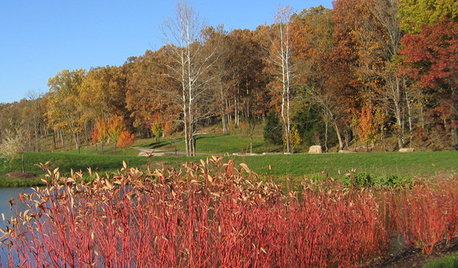
GARDENING GUIDESThese Hedges Can Add Interest to Your Winter Garden
Evergreen trees and shrubs provide structure and color in the winter months — and can attract wildlife too
Full Story
DECORATING GUIDESColor Feast: Yes, You Can Use Blue in the Dining Room
The sky's the limit for beautiful blues in your home's dining spaces; here's how to make it work
Full Story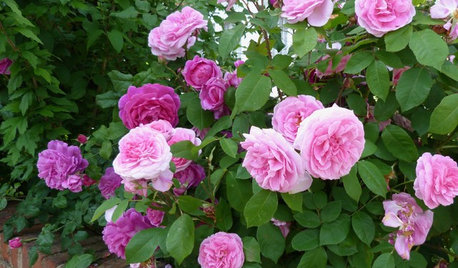
GARDENING GUIDESWhat Kind of Roses Should You Grow?
Want to add the beauty of roses to your garden? Find out which ones, from old-fashioned to modern, are right for you
Full Story
SPRING GARDENINGHow to Grow a Rose Garden in Pots
Everything can come up roses, even without a plot of soil in sight. This step-by-step guide to growing roses in containers shows you how
Full Story
DECORATING GUIDESBrass and Gold Accents Make a Comeback
Warm metals can be the perfect pick for vintage-modern spaces
Full Story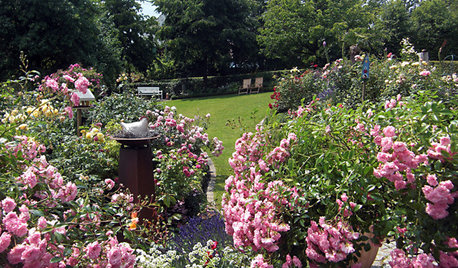
GARDENING GUIDES5 Sweet to Spirited Pink Roses for an Enchanting Garden
Whether you go demure or daring, there's a pink rose here to make you flush with garden pride
Full Story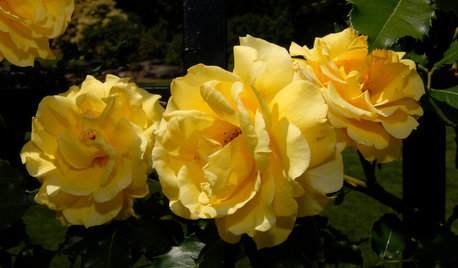
GARDENING GUIDES5 Favorite Yellow Roses for a Joyful Garden
Make 'cheery' the name of your garden game when you order your roses sunny side up
Full Story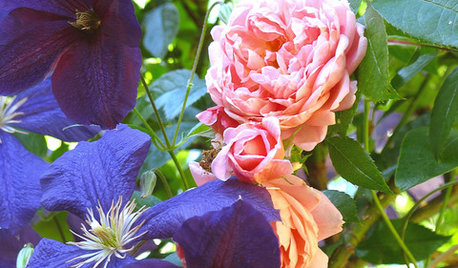
PLANTING IDEASGreat Garden Combo: Rose + Clematis for Small-Space Impact
We all need somebody to lean on. And when a rose supports a climbing vine, the results can totally transform a small garden
Full Story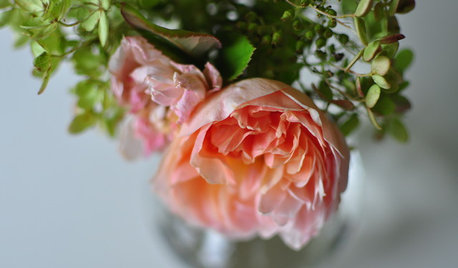
GARDENING GUIDESRoses: Crowning Touch of Gardens
Whether you're the Miss or Mister America of gardening or take a hands-off approach, roses can be a winning addition to your landscape
Full StoryMore Discussions








roseseek
mad_gallica (z5 Eastern NY)
Related Professionals
Arlington Landscape Architects & Landscape Designers · Cottonwood Landscape Architects & Landscape Designers · Clermont Landscape Contractors · Medford Landscape Contractors · Hampton Bays Landscape Contractors · Haverhill Landscape Contractors · Kaneohe Landscape Contractors · Lees Summit Landscape Contractors · Longmont Landscape Contractors · Melrose Landscape Contractors · Plantation Landscape Contractors · Ponte Vedra Beach Landscape Contractors · Porterville Landscape Contractors · White Bear Lake Landscape Contractors · Golden Valley Landscape Contractorskarl_bapst_rosenut
henry_kuska
ksgreenman
t_bredOriginal Author
catsrose
mnkitty
seil zone 6b MI
flaurabunda
henry_kuska
taoseeker
RpR_
henry_kuska
henry_kuska
henry_kuska
henry_kuska